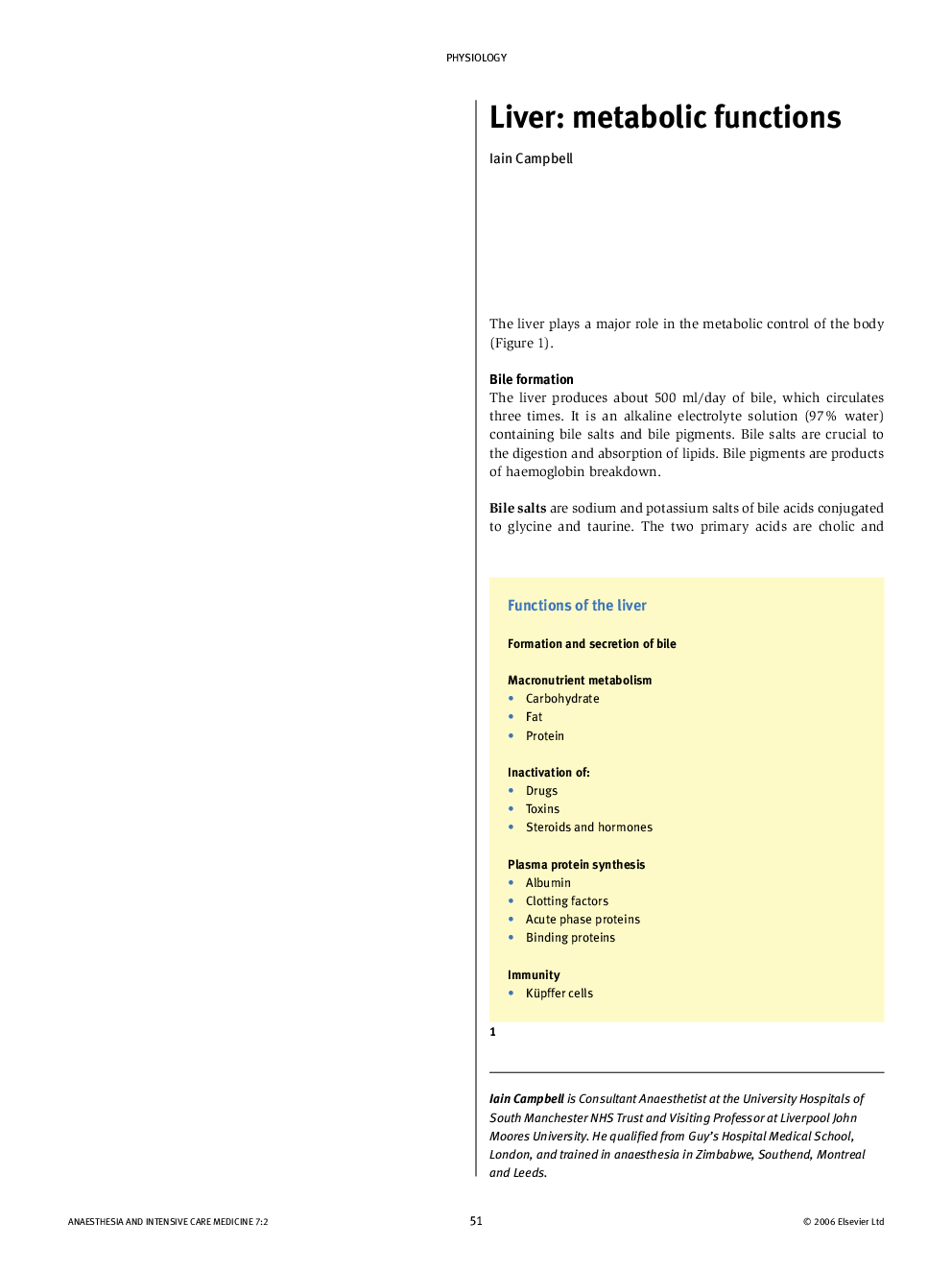| Article ID | Journal | Published Year | Pages | File Type |
|---|---|---|---|---|
| 2743963 | Anaesthesia & Intensive Care Medicine | 2006 | 4 Pages |
The liver is the major metabolic organ in the body. It synthesizes bile, which is important in the absorption of fat. The liver is also important in the catabolism of haemoglobin. It has a major role in carbohydrate, fat and protein metabolism, it acts as a carbohydrate store or buffer, evening out potential changes in blood glucose arising from the feeding-fasting cycle. It synthesizes proteins, but under stress or in times of shortage it synthesizes glucose from the gluconeogenic precursors – amino acids, glycerol and lactate. With stress it synthesizes ‘acute phase proteins’. It acts as a fat store and derives its energy from oxidation of fat and protein rather than carbohydrate. It metabolises xenobiotics (drugs and plant products), usually in two stages. The first stage, phase I, inactivates the substance, phase II conjugates the product with a water-soluble molecule that is either excreted in the urine or the bile.
